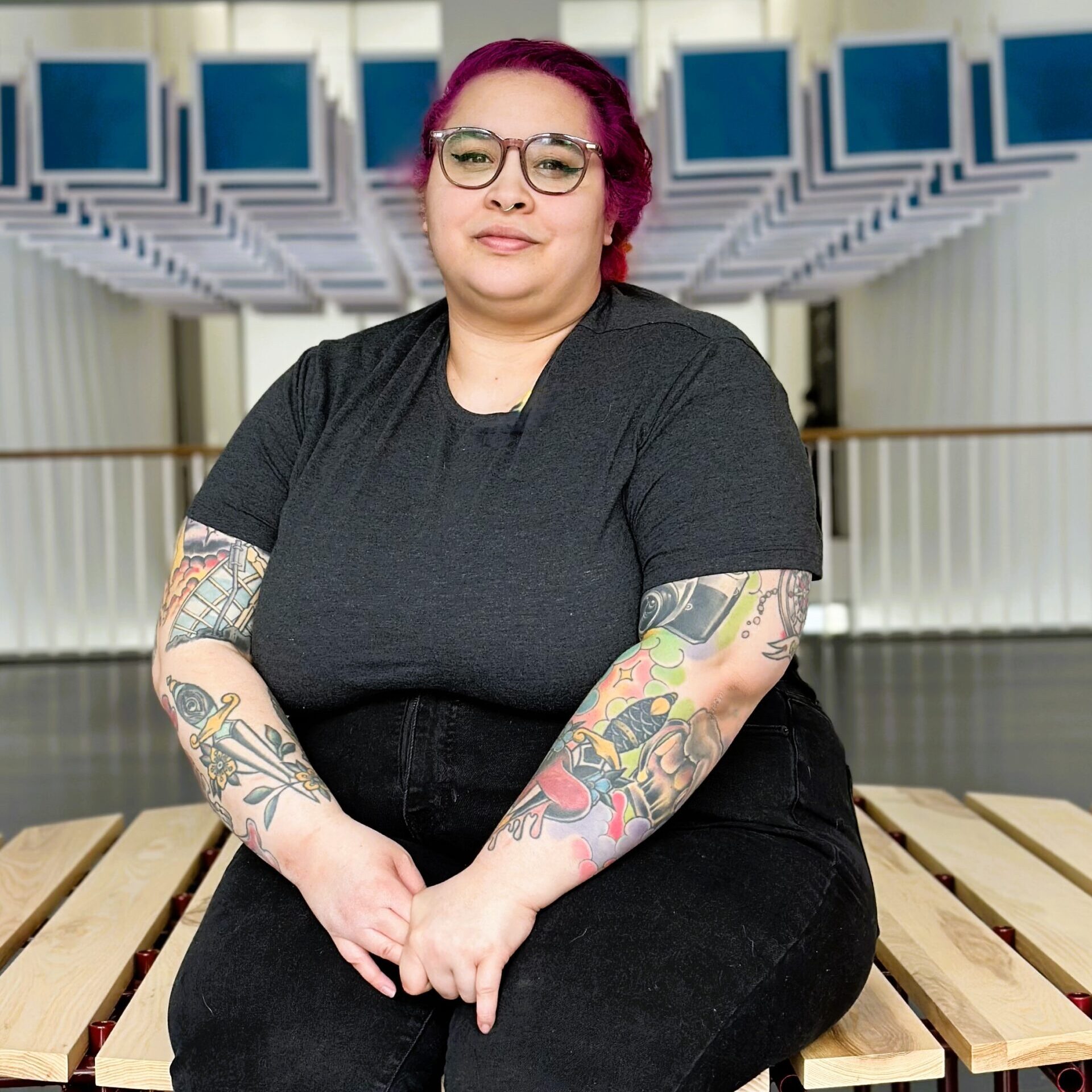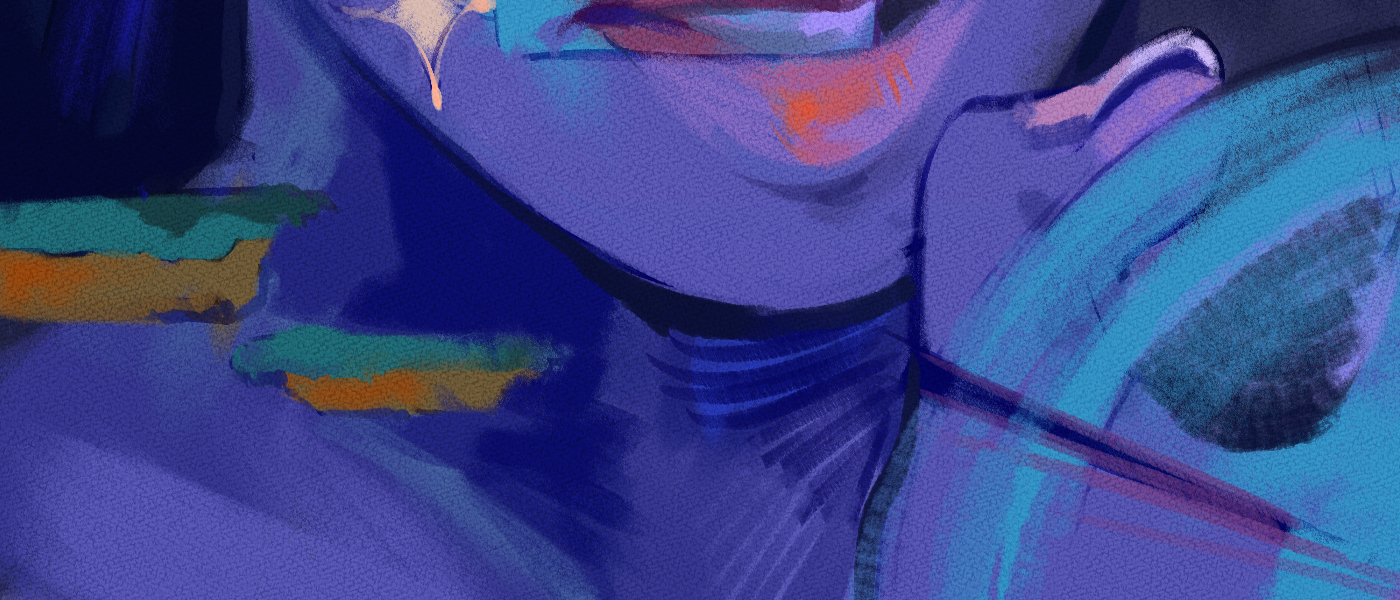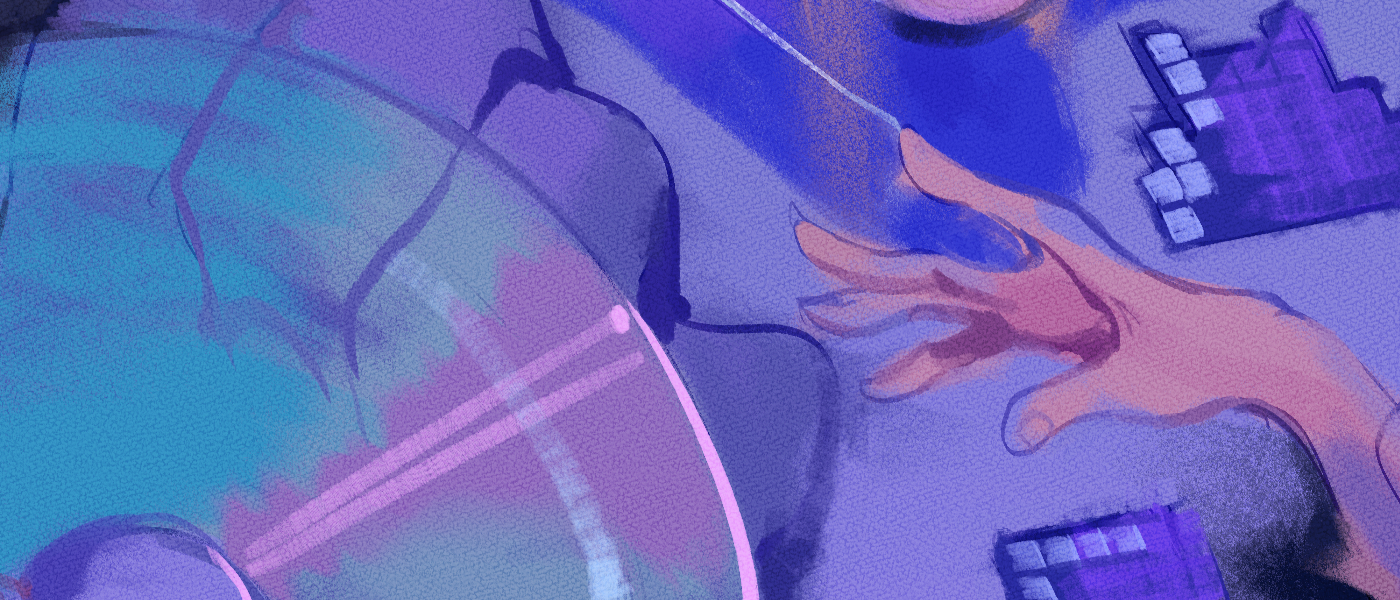When I was a child, I would play Mario Party mini-games until the skin on my palms rubbed off and I beat my cpu competitors I assigned to hard mode. I had the complete Mario Kart set and would sit on the floor, gas pedal sliding over the carpet as I raced on the OG Rainbow Road. The gift divorce brought me came in a Nintendo box. I had no complaints. It was a reprieve from the world where I was lazy, sloppy, and too much for everyone. In these video games, there were victories and meaningless losses. I had something I didn’t have to be good at. They were places where I could be a child away from the complications of divorced parents and siblings who said I was too young to be bisexual. Here, I found fun without punishment. As I grew up, I brought video games with me. The hobby I hid in the living room for no one to see was shared with my siblings and their children. My eldest nephew excitedly told me Fortnight was easy (the silent part was for old people like you). I joined my first party, and I was terrible—it was a relief. This was a freedom to escape perfection and expectation—a place where I could rest my anxious brain and my chronic pain. Here, I escape from (my) lack of control over the (plural) genocides in the world and the oppression I live in my day-to-day life.
The night I wanted to kill myself, five Christmases ago, we were looking for lechon for Noche Buena. It was my first time home since I left for my PhD in Sociology, and I came home disconnected from everything that made me feel loved. My sister drove silently as I sobbed. We had an unspoken agreement when we walked into the grocery store: I was not crying while checking tomatoes, and she was not uncomfortable as I was not crying in the produce section. I was not crying as we drove to the third grocery store on our list and she was not uncomfortable with me crying a lake into her passenger seat. This era of our family did not talk about suicide, depression, disability, or the collection of things that made our family life difficult. Instead, when we got back to the house, she put on Mortal Kombat, locked me in her room, and allowed me to disappear for 12 hours. I was not crying while playing Mortal Kombat, and she was not uncomfortable with this solution to my endlessly leaking eyes. She is the eldest daughter. She didn’t say the word anxiety until she was 30. Watching me pull flying bodies from green water and throwing them at Scorpion was something she could handle; watching me get tears on potatoes in grocery stores was a little iffy.
When I moved from home in 2018, I started playing Mortal Kombat online with my family to stay connected. I would come back from days of classes, protesting for unions, working to combat sexual violence, and looking to liberate all those MAD and disabled, and work, to play video games in my tiny living room in Chicago. My nephews, likely too young for the visuals of splintered bones and flying organs as FATALITY decorated the screen, gleefully joined on Facetime as we played online against each other while they stayed in Virginia. My youngest nephew, who refused to say goodbye the night I left for Chicago, waited for me so he could slam the triangle button repeatedly and remind me he was SO much better at fighting games than I was. My sister sat in the back and watched us. We were separated again, but here we could connect. Maybe she could not find the words for please don’t go, but she knew this was a safe place for me to stay, where I could love them all through shattered skulls and screams of STOP BUTTON MASHING. Katana and I fucked up story mode, and I thought about dying a little bit more, but here was a part of my life I could control. FATALITY flashing across my screen is an outcome I could modify.
It has been five years since the Christmas I wanted to die. It has been five years since I felt like Mortal Kombat had a “break open in case of mav emergency” written on the cover. When I stop and think back, I wonder what fragments of my reality were spiraling around creating the vacuum that would take my joy and will to love. I have always had friends and family who love me. My queerness always came with the taste of compulsory heterosexuality and the men who could love me but never want all of me. There was nothing new about the violence of the world. I was in grad school for three years before, so my body had adjusted to the skeptical gaze of professors and my brain that always seemed to be doing something fucking extra enough to piss off entire departments. A lack of control in my life was the norm. I still wonder what cracked my ability to navigate suffering with grace? I am a knowledge-craving autistic aries with a gemini moon and an AUDHD capacity for searching through databases for explanations, forgetting that sometimes the fleshy parts of me located outside of JSTOR tell me everything I need. The rapid hand movements on the controller offer a somatic tool for my healing beyond learning; it gives me the illusion of control over the outcome.
In divorce, I could not control when I saw my father and if he remembered my birthday. In Mario Party, I could set the CPU to easy on days when I couldn’t stop crying because Dad didn’t call and let the blisters distract me. Five years ago, I could not control the vast knowledge I was accumulating in a violent environment, with my neurodivergent heart and brain demanding I do something to make the world better lest I fail at being who I said I was. I could not control the ache of leaving a family where my presence reminded us that we could do better. I was a connecting bridge to patience, the sign we could shake some of the generational trauma. I could control Katana as she spun her fans around, leading me to another victory. Gratuitous violence provided laughter instead of a reminder of how lonely I was, the brutality of grad school and activism, the fatal legacy of colonialism, and how it has fucked with my existence.
It has been five years since the last time I truly thought I wanted to die. After sobbing in the grocery store and playing Mortal Kombat from full moon to sunrise, I changed my flight to go back to Chicago a day early. While I was packing my suitcase, my mother went into the closet and brought out one last Christmas gift. It was a Nintendo Switch: Mario Kart Edition. I played Mario Kart through the airports in two states. I used it to ignore that I anxiously boarded the flight home fat with a seatbelt extender in a chair made to make my body hurt as much as possible for profit. I sat in my tiny apartment in Chicago and played for days leading up to the start of the semester. I sat and healed, playing Mario Kart alone in the city, trying to get myself closer to being someone who makes the world better, lives their values, and has the enduring hope and heart to fight for liberation.
These days, the world is on fire in all the same ways with new names. I am in the fortnight lobby as a 32-year-old disabled queer looking for some relief. I wrestle with the realities of watching children die by bombs and under rubble. I hear stories of rampant sexual violence, starvation, and slavery. I get on a PlayStation, likely made with parts from children in Congo, and punch people with nitro fists until I come back to the fight, ready to handle the things I can control and fight the things I can’t. In this place, I am (mostly) safe. In this place, violence is not enacted upon me without my consent. In this place, we emote to Megan Thee Stallion and skydive out of buses to fight people dressed in bird costumes using lightning guitars to fly through the sky. Yesterday, I fought Marvel characters with a player who looked like the dead army from Lord of the Rings. Today, I use a pumpkin grenade launcher dressed as Deadpool as I dance to N’SYNC with ten other people in the lobby through a synced emote. In this place, I recharge to return to the world and fight for liberation, to hold the grief of others, and to use my compassion to power my actions. Video games allow me to see humanity in a way that expands my capacity to see the humanity of others. Am I perfect? No. Am I complicit in the violence around the world? Yes. Will the peace I find here help me cultivate energy for the revolution? Hell yes.
In 2024, I cannot control settler colonialism, ableism, fatphobia, and the narratives of who is good and worthy of freedom and human rights in the world. I cannot control babies being left in NICUs to die. Despite really wanting to. Despite it being only two years after my daughter was born at 3 lbs, 8 weeks early, taken in a plastic incubator before I could touch her, and never wanting that separation for any other parent. I can control this Fortnite character that looks like the Pumpkin King and does the dougie when I win victory royales. This is a part of my life I am in control of. I win. There is joy in these battle passes and made-up currencies I use to buy TikTok dances, so people have to hear Victoria Monet while loading the map. I moved back home so I take my nephews to arcades, and we play DDR like my knees are young and stay up in Fortnite lobbies like my brain is still elastic. My two-year-old dances with us with a full smile, not yet looking for peace, just fun. She teaches me I can hold liberation and pleasure in the same hands. Every day, I see joy essential to making this world something I am not ashamed to let these children inherit. One day, she will watch a fatality on the screen, and she will have looked up the combo right before she did it. She will giggle at the phrase “gorenado.” We will talk about how the world is changing—this gratuitous, outlandish violence will be the only type she tolerates.




